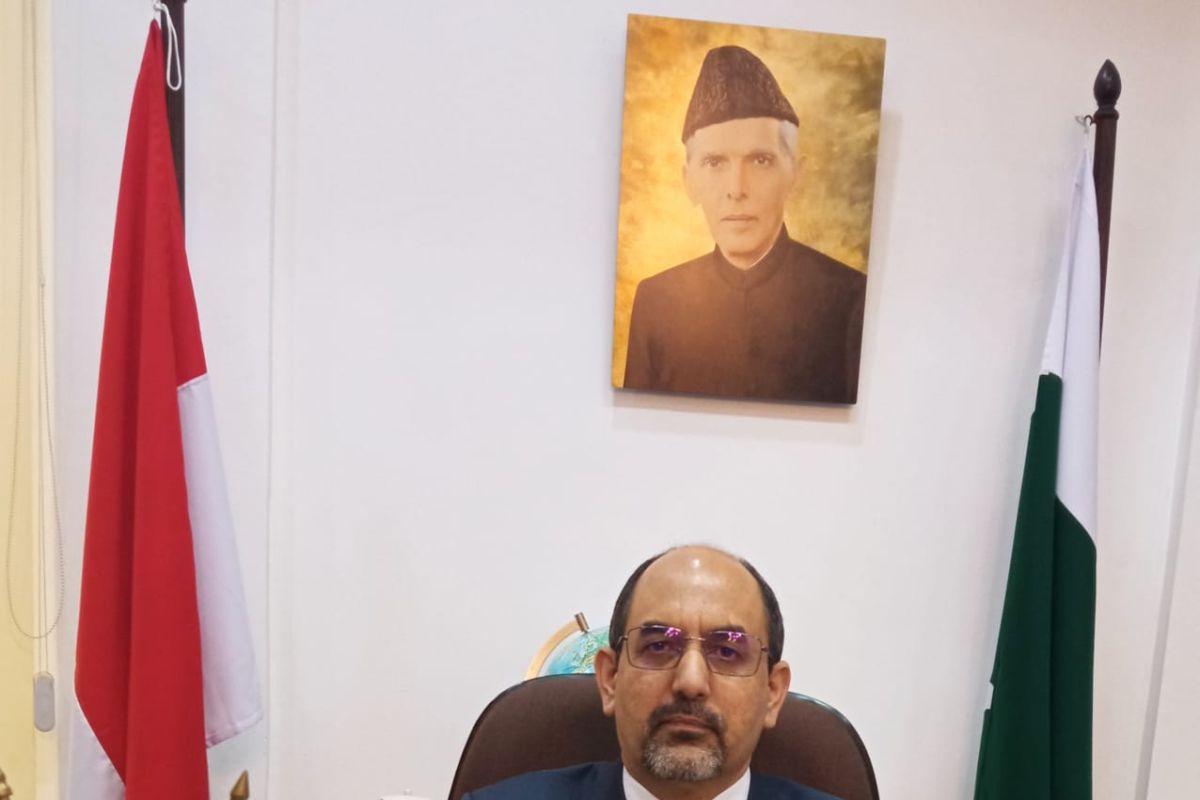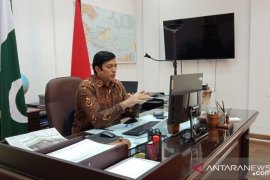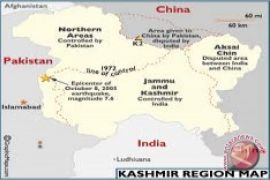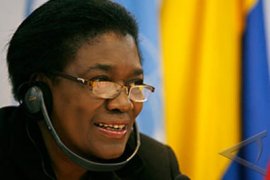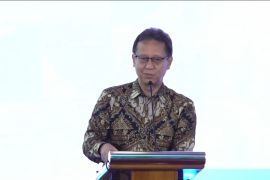to deny people their human rights is to challenge their very humanityJakarta (ANTARA) - Nelson Mandela once said, “to deny people their human rights is to challenge their very humanity”. This is what is happening in the Illegally Indian occupied Jammu and Kashmir (IIO&JK) for the last 74 years.
The Jammu and Kashmir dispute between Pakistan and India has been on the agenda of the UN Security Council since 1948. It remains an internationally recognized dispute, as affirmed by the relevant Security Council resolutions. Despite the solemn commitments made by the Government of India in numerous official communications to the Security Council, to Pakistan, to other states, and to the people of Jammu and Kashmir to abide by and implement the UN Security Council’s resolutions on Jammu and Kashmir, India has reneged on these commitments over the years.
The Indian illegally Occupied Jammu and Kashmir (IIOJ&K) has a long and tragic history of massive human rights abuses by Indian occupying forces, who for seven decades have been committing atrocities with complete impunity. Today, the IIOJ&K is the most militarized part of the world, where close to a million security forces have been deployed to curb the legitimate struggle of the Kashmiris for their inalienable right to self-determination.
A new chapter in the repression of Kashmiris at the hand of Indian authorities was opened on 5th August 2019, when India's BJP government stripped Kashmiris of the special autonomy, they had for seven decades by repealing Articles 370 and 35 A of its constitution, to change illegally and unilaterally the status of IIOJ&K and further pave the way for demographic changes in the valley with an aim to turn the indigenous Muslim population in to a minority.
What has followed is the worst human rights situation in the history of Jammu and Kashmir dispute with two years of uninterrupted and brutal military siege and crackdown. The deployment of additional 180,000 paramilitary troops, has turned the territory in to world’s biggest open-air prison. This was accompanied by a huge security clampdown in the occupied territory, media blockade, extrajudicial killing, fake encounters, restrictions on fundamental freedoms, communication blackout including shutdown of internet and telephone services, an excruciating curfew. Through its illegal and unilateral actions of August 2019 and illegitimate domicile laws, India has been acting in direct contravention of the relevant UN Security Council resolutions and international law including the 4th Geneva convention.
Since August 2019, there has been no letup in the worsening humanitarian situation in IIOJ&K. Two years into siege, hundreds of political leaders, including pro-Indian political figures remain detained, thousands of young men and children, political activists, human rights defenders, journalists, and lawyers have been denied the right to offer Friday and Eid prayers, in utter violations of their fundamental rights.
Despite calls to ease up the restrictions, the India authorities also callously exploited the Covid-19 crisis to further advance its unlawful occupation. The corona virus has exacerbated the suffering of the Kashmiris condemning them to the precipice of a vast human tragedy. The prolonged siege in IIOJ&K has already depleted essential medical supplies in hospitals. Now with the coronavirus spreading rapidly, the hospitals are entirely incapable of meeting the public health crisis.
Post August 5, 2019, the UN Secretary General Antonio Guterres has expressed concerns over reports of restrictions on the Indian side of Kashmir, which could exacerbate the human rights situation in the region. The Organization of Islamic Countries (OIC) and the Independent Permanent Human Rights Commission (IPHRC) termed IIOJK as world’s largest prison.
One of the most significant pronouncements on India’s systematic and widespread violations of human rights in Kashmir came from United Nations High Commissioner for Human Rights who published two comprehensive reports in 2018 and 2019 on the despicable state of human rights in Kashmir repeatedly calling for establishment of a Commission of Enquiry to investigate gross systematic violations of the rights of people of Jammu and Kashmir. The Special Mandate Holders and Rapporteurs of the Human Rights Council have also frequently urged India to ease restrictions in Kashmir and hold the perpetrators of these heinous crimes accountable.
In February 2021, two UN human rights experts Fernand de Varennes, Special Rapporteur on minority issues, and Ahmed Shaheed, Special Rapporteur on freedom of religion or belief, after concluding a two-day visit of the occupied valley, voiced their concern over India's decision to revoke occupied Kashmir's autonomy and enact laws that could curtail the political participation of Muslims and other minorities. They noted that that on August 5, 2019, India "unilaterally and without consultation" revoked the constitutional special status of the region and passed the so-called domicile rules in May 2020 which removed protections given to those from the occupied territory. They further pointed out that the legislative changes might have the potential to pave the way for people from outside Jammu and Kashmir to settle in the region, alter the demographics of the region and undermine the locals’ ability to effectively exercise their human rights.
On 30 July 2021, 16 European parliamentarians wrote a letter to the European Commission on the "humanitarian situation" in Indian-occupied Kashmir, urging the European Union to raise its voice on the issue and take action. Addressed to European Commission President Ursula von der Leyen and Vice President Josep Borrell, the letter said: "As a champion of universal human rights, fundamental freedoms and the rule-based international order, the EU must raise its voice against the violations of human rights affecting the people of Jammu and Kashmir. "We believe that the EU should use all its leverage and tools to cooperate with our Indian and Pakistani partners to honour the pledge made to the Kashmiris by the international community and create an environment conducive to the implementation of the United Nations resolutions." The lawmakers expressed the resolve to continue their engagements with Pakistani and Indian lawmakers as well as Kashmiri leaders "to impress upon them the urgent need to foster a climate of peace and dialogue in the region". The letter noted that it was "extremely important" for Kashmiris to be heard and granted the opportunity to decide their own future.
The lawmakers called on von der Leyen and Borrell to carry out the following actions on EU's behalf:
• Convey the "grave concern" over the violations of human rights and fundamental freedoms in IoK to the Indian government
• Take urgent action to address the "alarming" human rights situation in the region
• Contribute to peace and stability in the region by enhancing dialogue between India, Pakistan, and Kashmiri representatives through making use of "our special relationships with both India and Pakistan".
Pakistan has welcomed the letter by members of the European Parliament addressed to the president and vice president of the European Commission. Pakistan’s Foreign Office Spokesperson Zahid Hafeez Chaudhry has said that the letter was “another demonstration of the continuing global censure of the ongoing human rights violations and humanitarian crisis in Indian Illegally Occupied Jammu and Kashmir”. He said although India continuously peddled false propaganda in futile attempts to push the sham narrative of so-called normalcy in occupied Kashmir, the global censure and condemnation of the Indian atrocities in the valley continued. He further stated that India must realize that it cannot ignore the international community’s continuing calls to end its grave and systematic human rights violations in Occupied Kashmir.
The international community, human rights organizations, media, and civil society have been vocal in their condemnation of India's unconcealed absolutism. Parliamentarians of major world powers have written to their leadership and moved resolutions, condemning India's actions. Major world leaders have stood by the Kashmiris. The United Nations Security Council has discussed the issue of Jammu Kashmir three times during the past two years after a gap of more than 55 years.
The above notwithstanding, the international community must do more and back its words with concrete actions for the innocent Kashmiri people who have been subjected to arbitrary arrests, detentions, torture, corporal punishment, extrajudicial killings, digital lock down and end its siege in Indian illegally Occupied Jammu and Kashmir continuing for over 24 months for a large part of the global population to continue to have faith in international justice. It is imperative that India is held accountable for his actions since 5th August 2019. The world community must press India to revoke all draconian laws, allow neutral observers, international human rights and humanitarian organizations and the international media to visit the occupier territory to ascertain the conditions of Kashmiri people and let the Kashmiris exercise their right to self-determination in accordance with the UNSC resolutions. Pakistan will continue its unstinted support for the Kashmiri people until the achievement of their legitimate right to self-determination in accordance with the UNSC resolution and as per the wishes of the Kashmiri people.
The views and opinions expressed on this page are those of the authors and do not necessarily reflect the official policy or position of ANTARA News Agency
*Muhammad Hassan is Ambassador of Pakistan to Indonesia
Copyright © ANTARA 2021
